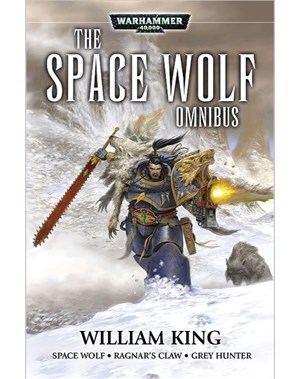
While flying to and from England, last month, I read C.L. Werner's Runefang, one of the Warhammer Fantasy titles published by Black Library. My exposure to Warhammer Fantasy has been a long one, dating back to the table top game that I started playing - er well, at least painting minis for - in the early 90s, and into my introduction to the Fantasy RPG through my friend Travis in the earlier part of this decade. I've read all of the Gotrek and Felix novels, as well as some of the lower profile titles released over the past few years. Runefang was a well done addition to the canon, being a title that expanded upon the world of Warhammer. Gorbad Ironclaw, Gordreg Throatripper and Uhrghul Skullcracker, two of the game's orc legends, were introduced as characters in the novel, marauding orcs who led hordes across the world. In the midst of the maelstrom of these orc invasions (spread across several generations) were attempts to wield a magical sword called the Runefang to defeat the tide of monsters descending upon civilization, albeit a dark and hopeless civilization, unlike the shinier safer worlds of many other mainstream fantasy series like Ed Greenwood's Forgotten Realms and others.
The world of Warhammer is not a place where tidy and charming wizards pop up at the last minute to save the day - I actually lost count of the number of primary and secondary characters that died during Runefang. That, I think, is the key piece about Warhammer Fantasy, and what works and doesn't work for it as a shared world of fiction. The world itself is immense and much more like the "points of light" idea that Wizards of the Coast is trying with the Forgotten Realms now - the idea that society in between the outposts of civilization in a fantasy world is a harsh, cruel place without much amenities or even safety. Werner did a great job with painting that image in Runefang, wherein a Dirty Dozen style motley crew of characters are sent on this suicide mission to retrieve this magical sword from a long lost outpost across the barony where the story unfolds. There are bandits, orc tribes, rival factions in the court who would not like to see the (anti-heroes) succeed, and more. But Werner balances this with some hope and some heroism, which is more than I can say for what some of the other Warhammer titles are able to carry out. Particularly Elfslayer, the latest in the Gotrek and Felix series, and the other dark elf titles, seem to border on exploitation rather than "dark fantasy". Knowing that a village was razed by vicious marauders should be enough for the readership of the novels, without details of the torture and pillage. I know there's a market for very dark fantasy, but I do have some concern that the readership of novels based on a tabletop game played by young people may not be the place for exploring this territory. (Wow, never thought I'd sound like an old fogey like this.)
Warhammer titles that I thought did a good job of expanding upon the Warhammer world in a fashion that I thought lent more to the overall "shared world" include:
- All of the William King Gotrek & Felix titles, as well as the first couple by Nathan Long (Orcslayer and Manslayer)
- Fell Cargo by Dan Abnett
- The Adventures of Florin and Lorenzo by Robert Earl
- The Enemy Within by Richard Lee Byers
- Mark of Chaos by Anthony Reynolds

No comments:
Post a Comment